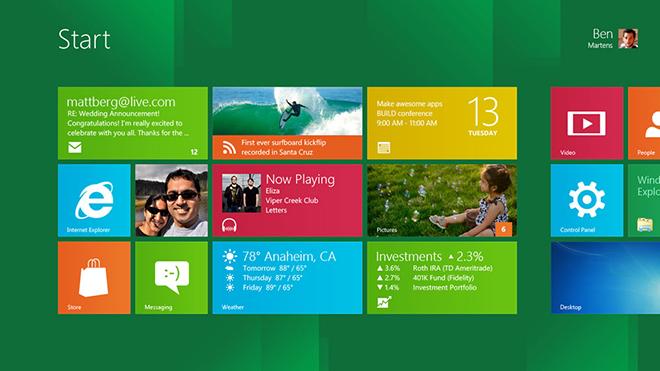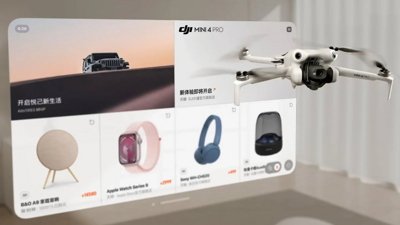Windows 8 hits 100 million sales, Microsoft working to address user complaints
Even as Microsoft's Windows 8 reached a milestone in passing 100 million licenses sold, the software giant is preparing to rework its latest operating system in order to address the realities of a drastically changed computing market.
Officials from Microsoft revealed the 100 million sales figure to media outlets last week, but it was only publicly released on Monday, according to Reuters. The sales pace for Windows 8 roughly matches that of Microsoft's successful Windows 7, but observers doubt that the new system is on track to have an impact comparable to the older one.
In the past four months, Windows 8 has sold 40 million units, lower than Windows 7's average sales rate. Windows 7, though, had the benefit of replacing the much maligned Windows Vista. Windows 8, meanwhile, represents Microsoft's attempt to counteract the ongoing popularity of Apple's iPad, even as the PC market that supported Microsoft and its hardware partners looks to be crumbling.
The traditional computing market — the so-called "Wintel" grouping of Microsoft, Intel, and a collection of PC manufacturers — suffered its biggest decline ever last quarter, dropping 14 percent year-over-year. A soft global economy, the rise of smartphones and tablets, and a plateau in overall PC design have all played a part in the market's stagnation and decline, but observers also point the finger at Microsoft, whose Windows 8 marked a significant departure from the standard set by the preceding editions.
The touch-centric Modern UI featured in Windows 8 was Microsoft's answer to the rise of iOS and Android, which dominate a mobile device segment where Microsoft has been largely unable to gain traction. Consumers balked, though, at Windows 8's marked difference from its predecessors, especially the move away from a traditional desktop into the Metro UI's tile-based touch environment and the apparent abandonment of the familiar Start button.
Windows 8 also suffered from high component prices in the touch-enabled computers it is meant to power. Microsoft has responded by cutting licensing prices for Windows 8 on some devices, as well as encouraging its partners to develop smaller Windows 8 form factors in order to compete with the iPad mini and other mid-size tablets.
Tablets running Windows 8 combined to grab about 7 percent of the market in the first quarter of last year. Apple's iOS held roughly 48 percent of the market, while Google's Android operating system grew to 43 percent.
The flat consumer response to Windows 8 has been likened to Coca-Cola's launch of New Coke some 30 years ago, notes The Financial Times. Coca-Cola, though, dropped its New Coke formula after only three months of consumer backlash, while it apparently takes longer to turn around a software giant.
Microsoft is trying to turn it around, though: The Redmond giant is preparing a follow-up to Windows 8, currently codenamed Windows Blue. That version, also known as Windows 8.1, is said to include the ability to boot straight to the traditional desktop, largely bypassing the "Modern" environment. Microsoft will be revealing more about the update's functionality in the coming weeks, but for now the company says it will be doing more to help consumers adapt to new features.
""The learning curve is real, and we need to address it," Tami Reller, Microsoft's Windows unit co-head, said to Reuters. "We're not sitting back and saying they will get used to it."
 Kevin Bostic
Kevin Bostic











 Amber Neely
Amber Neely
 William Gallagher
William Gallagher

 Malcolm Owen
Malcolm Owen











